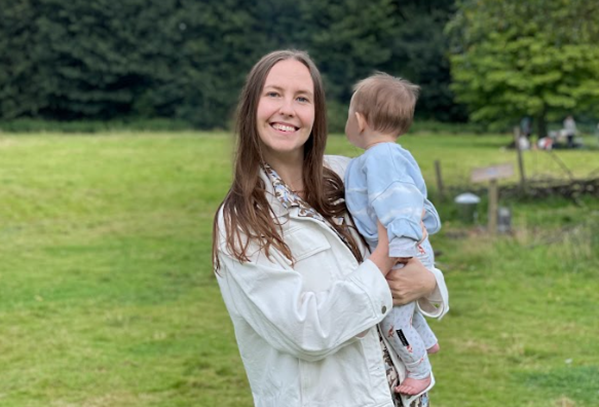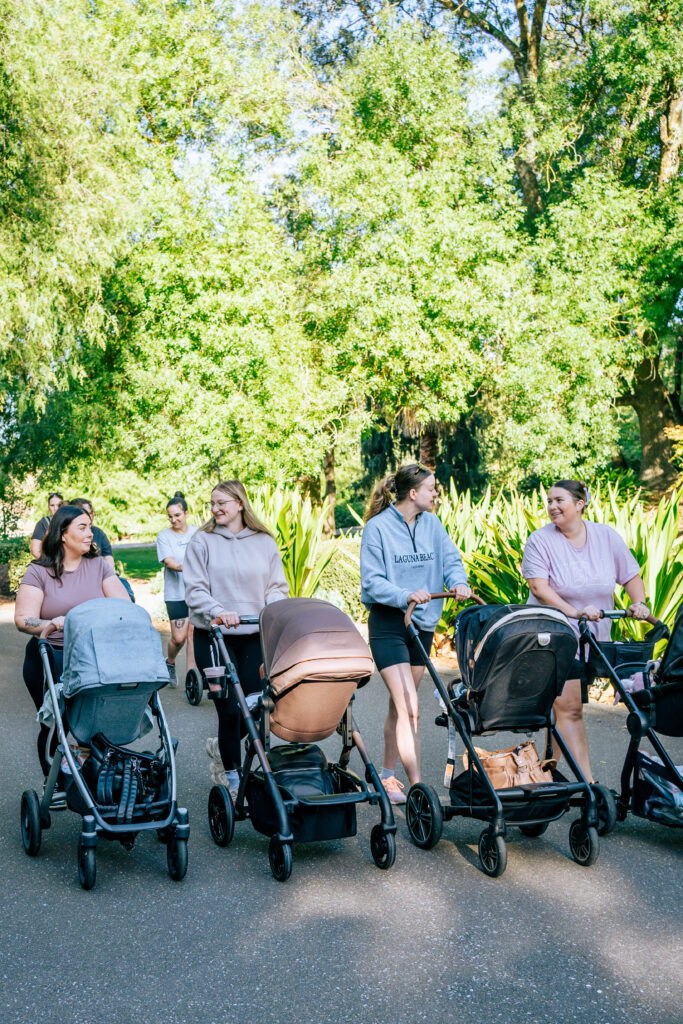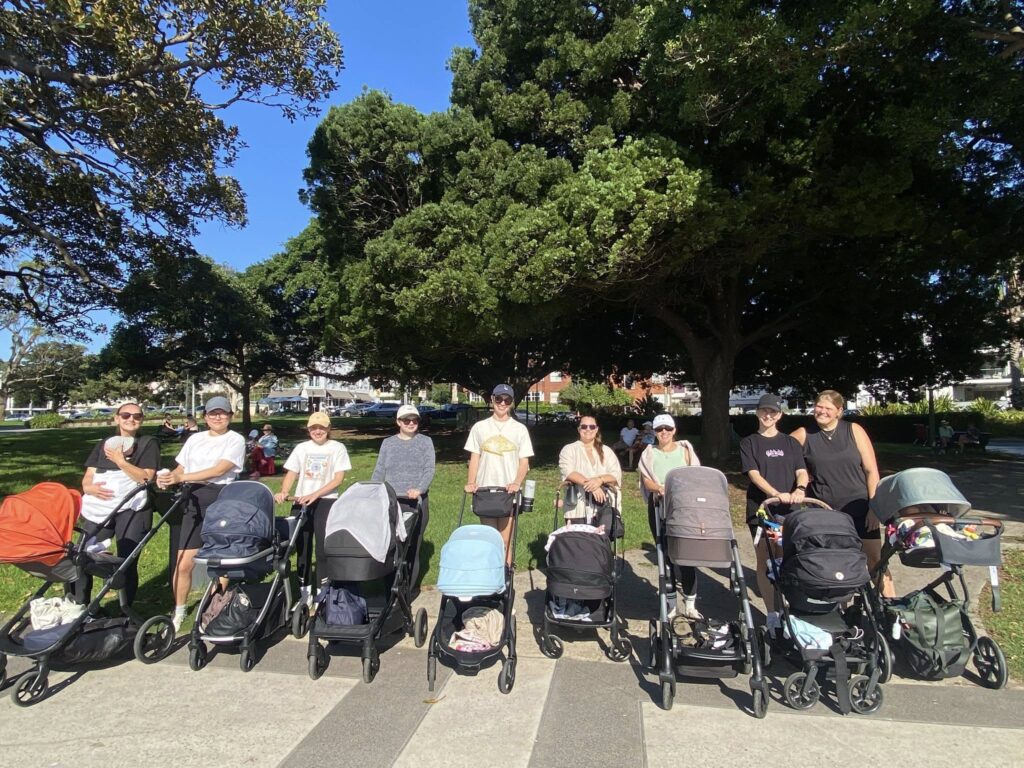For Kimberly Kay, the joy of becoming a first-time mum was quickly overshadowed by the isolation of the pandemic, leaving her to face the challenges of new parenthood largely on her own.
“I experienced a lot of isolation and loneliness that for me turned into postpartum depression,” Kimberly shares with Women’s Agenda.
When restrictions started lifting in the UK where she was living at the time, Kimberly remembers how powerful it was to meet up with another mum going through the same thing.
“I just remember a simple walk and talk with another mum in the same season as you, being so transformative and it really got me through it,” Kimberly says.
Kimberly later moved to Australia and fell pregnant with her second baby in a brand new city. She was determined to build new social connections so her experience would be different.
“Even though I’m from Australia, I was moving to Melbourne, a brand new city, and I knew I had to start my social connections from scratch,” she explains.
“I knew for my mental health the second time round that that was a huge priority for me.”

As a second time mum, Kimberly said there weren’t a lot of options out there to build new connections with other mums.
“I didn’t want to go spend my time at playgroups or story time at the library and hope I pick up conversations with other mums and slowly, maybe [make] some friends,” she says.
“Instead, I put a little post on a local Facebook group and said, ‘Is there anyone out there who wants to go for a walk and a chat?’
Dozens of women responded to her post, and Kimberly hosted her first-ever, very unofficial ‘Mum Walk’.
The simple idea very quickly gained traction. There was so much interest from women looking for other mums in their local area that she decided to lean in and help these women connect.
“What I noticed quite quickly is this crisis in connection in the motherhood space,” Kimberly says.
“Then when I looked into it, I found out that there is a real loneliness epidemic in Australia – that mums are particularly vulnerable to”.
A motherhood connection crisis
While studies on motherhood loneliness are limited, some research suggests that 90 per cent of new mums feel lonely after giving birth.
The Medibank Loneliness Population Index found that a major life event – like having a baby – can spur on feelings of isolation. In fact, those who currently or recently experienced a significant life event are significantly more likely to score highly on the UCLA loneliness scale (70 per cent) than those who haven’t (30 per cent).
According to Perinatal Anxiety & Depression Australia (PANDA), loneliness, isolation, lack of support and a reduced social network are associated with perinatal mental health and wellbeing challenges.
It’s a reality that Kimberly is pushing to have addressed – she calls it the “motherhood connection crisis”.
“For young mums, migrant mums, LGBTQ+ mums, those numbers are even higher,” she says.
“There’s a real crisis in connection. The problem of connecting mums hasn’t been solved.”
In Australia, council-led mother’s groups are offered, but as Kimberly points out, these can feel like a “lottery system” and in regional and rural areas, they can be few and far between.
“Sometimes you’ll meet your best friends forever. Other times, they’ll fizzle out,” she says. “There’s a lack of a leadership framework to do consistent meet-ups.”
That’s where Mum Walk comes in – it’s now Australia’s leading platform for mums to find, join or even start a local social pram walk with other mums in their local area.
“Mum Walk is a community first, tech-backed approach to solving the motherhood connection crisis,” Kimberly says.
Expanding from zero to 50 walks in a year in locations across Australia, Kimberly says the women who’ve participated have been able to build strong connections with other mums in their area.
It’s special because Mum Walk specifically supports mums to carve out time for themselves in a chaotic and overwhelming period of life – one where women often struggle to prioritise their own social wellbeing.

“We’ve had a lot of feedback from our mums that it’s really improved their mental health outcomes. I’ve had feedback that this is by far the best way women have made friends in their local area,” she says.
The walks are specifically designed to be short and pram-friendly, and afterwards there is a stay and play, which mums can always join at the end if the walk itself isn’t possible.
“Sometimes just getting out of the house for a mum is really, really hard. Going for a walk with a baby can be really hard. I know I had kids who really struggled in the pram,” Kimberly says.
“So we also do the Stay and Play afterwards, just in case they’re running late, or, if it’s just too intimidating to do the walk just yet. They can just expect to be met with a great group of people.”
The identity shift in motherhood
There’s a real identity shift that women go through when they become a mum. Indeed, the term ‘matrescence’ was coined by the anthropologist Dana Raphael to help explain the profound changes women undergo as they become mothers.
Having a strong social network can help mums to feel less alone in the transition, Kimberly explains.
“There’s this instant feeling of disconnect from yourself and this huge identity shift that happens when you become a mum,” Kimberly says.
“So you’re already feeling disconnected and isolated from yourself. You have to go through this real period of getting to know who you are now. We don’t have the traditions, rituals and ceremonies that other cultures do to honour how significant a shift in identity that postpartum period is.”

Consistency is key
If there’s one thing mums can expect from Mum Walk, it’s consistency. It’s a commitment that helps women to feel continually supported and connected.
“Consistency is non-negotiable for us. We walk at the same place, same time, every week. You’re guaranteed for someone else to be there,” Kimberly explains.
“I really genuinely want to shift the culture of motherhood in Australia and help mums bring more joy back into motherhood. And they do that by being in community. And they do that by experiencing motherhood together.”
To learn more about Medibank’s commitment to reducing loneliness head to We Are Lonely | Medibank.
About the research
Research commissioned by FiftyFive5 on behalf of Medibank. Research was conducted in July 2024, among a sample of (n=4,131) Australians.

